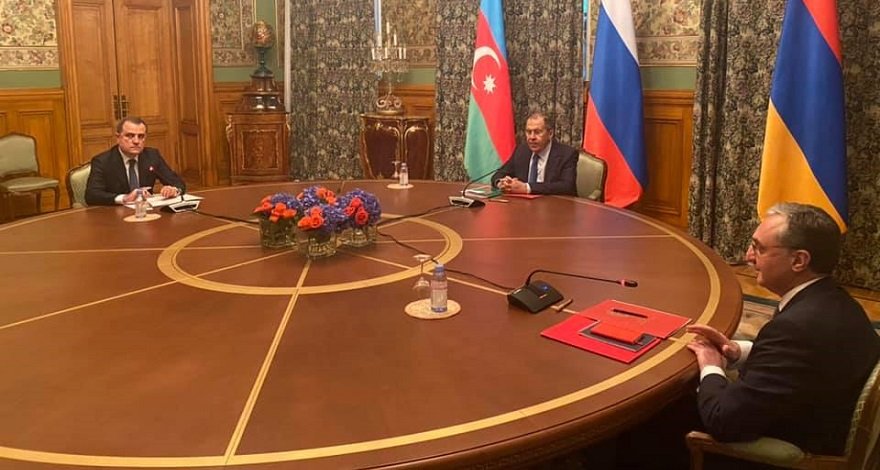
Azerbaijan and Armenia agree to a “humanitarian ceasefire”
10 October 2020
With Russia's mediation, Armenia and Azerbaijan agreed to a ceasefire in Nagorno-Karabakh following two weeks of heavy fighting that marked the worst outbreak of hostilities in the separatist region in a quarter-century.
The breakthrough came after some 10 hours of talks in Moscow, in the early hours of Saturday morning. The ceasefire will at 12.00 on October 10 and will be carried out "for humanitarian purposes, for the exchange of prisoners of war, other detained persons and bodies of the deceased." The parameters of the ceasefire will be agreed upon separately.
Armenia and Azerbaijan also plan to start “substantive” talks over Nagorno-Karabakh, Russian Foreign Minister Sergey Lavrov said.
The latest outburst of fighting between Azerbaijani and Armenian forces began Sept. 27 and left hundreds of people dead in the biggest escalation of the decades-old conflict over Nagorno-Karabakh since a separatist war there ended in 1994. The region lies in Azerbaijan but occupied by Armenia and has been under control of Armenian forces.
The talks between the foreign ministers of Armenia and Azerbaijan were held on invitation from Russian President Vladimir Putin, who brokered the ceasefire in a series of calls with President Ilham Aliyev of Azerbaijan and Armenia's Prime Minister Nikol Pashinian. Russia has co-sponsored peace talks on Nagorno-Karabakh together with the United States and France as co-chairs of the so-called Minsk Group, which is working under the auspices of the Organization for Security and Cooperation in Europe.
Azerbaijan previously had made a potential truce conditional on the Armenian forces' withdrawal from Nagorno-Karabakh, arguing that the failure of international efforts to negotiate a political settlement left it no other choice but to resort to force.
Speaking in an address to the nation Friday hours before the cease-fire deal was reached, the Azerbaijani president insisted on his country's right to reclaim its territory by force after nearly three decades of international talks that "haven't yielded an inch of progress."












